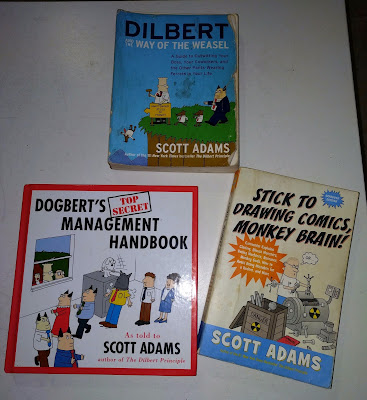Crikey recently published an article by William Bourke, founder of the Sustainable Australia Party, claiming the elitism of the Greens and their disdain for the concerns of "ordinary" Australians
is sending those ordinary Australians to vote for One Nation. It's a demonstrably false assertion - at
the 2016 Federal election, the Greens gained slightly in their primary vote, alongside a large increase for the ALP - those switching their vote to One Nation were largely coming from the Liberal party, along with the Palmer United Party, touted as a new independent force in Australian politics following their gains in 2013, only to be wiped out in 2016, with their share of the national vote plummeting from 5.5% to zero.
Let's be honest. I'm sure there are Greens voters of long standing who, seeing one reference to fascism too many, have suddenly shifted their allegiance to One Nation - but they could probably all fit around the same table to discuss it.
And at the end of it all, One Nation's national primary vote stands at 1.3%, versus 10.2% of the Greens. In the face of the dull, inept Prime Ministership of Malcolm Turnbull and his banality of his evil ministers, the media is instead hyping the soundbite friendly Hanson and her team for all they're worth, ascribing to them power and momentum they do not have leading a populist movement which doesn't exist.
If labelling all those who veer to the right as Nazis is unfair, then it's certainly a bit shabby to call people who veer left as elitist. Unfortunately, it has long served the powers that be in the government and media to call us elites (usually along with the descriptor "inner city", not used in admiration). The so-called rise of right wing populist parties has done nothing to dissuade them; it suits the centre/centre-right to blame the shift to One Nation and independents on the Greens rather than do the necessary soul searching on why they themselves have failed these voters.
In labelling the Greens as elites distant from ordinary Australians though, this article and others liked it point to an underlying truth. The concerns of many disaffected and disengaged Australians are legitimate; but unlike the febrile rantings of leaders who blame Muslims, immigration and climate change conspiracies - but no workable solutions - the Greens offer a plan for Australia that will especially benefit those marginalised voters; sustainable solutions to issues of housing prices and job security. But we need to get much better at getting the message out, engaging with them.
Australia doesn't suffer from the massive blue state-red state/city rural economic divides that have been blamed for the ascension of President Donald Trump. (An aside - after the shock of David Bowie's unexpected death, for a couple months afterwards I'd suddenly find myself remembering and thinking "holy hell, David Bowie is dead". It's early days yet, but I suspect I'll be having "far canal, Donald Trump,
really?" moments for months to come).
There are however huge problems affecting the lives of millions of Australians that we just don't hear enough about - cost of living and housing prices, underemployment and unstable employment, real rural and regional disadvantage - that didn't seem, to your average punter, as being such issues a generation or two ago. I won't bore you all with yet another of my
treatises on economic rationalism, but the fact remains that the neoliberal model of profit, especially short term profit above all, espoused by Thatcher and Reagan and beloved by western democracies ever since, has destroyed the social contract, what would seem to one's birth right in a safe and prosperous nation - that if you work hard and are a good person, barring calamity you will have a comfortable life.
These concepts are difficult to sum up in a slogan or soundbite, though. And when your average voter struggling with a rental increase and that after years as a casual, subcontracted employee their company has just announced massive job cuts and they'll struggle to get another role looks around at the state of their life and nation, they don't see the influence of the Chicago School of Economics at work. They see immigration causing increased competition for jobs and housing, Then they get home and turn on the news and there's young Islamic men arrested on terrorism charges again - and a Greens spokesperson condemning government treatment of asylum seekers, seeming to care more about these unknowns whom they're sure are just country shoppers, than they do about ordinary Australians.
Who are they going to vote for - the party that has the good policies on their website, but the slogans about queer rights and asylum seekers - or parties that screech about Muslims, or for that matter promise to stop the boats they see as bringing the hordes of Muslim immigrants who are simultaneously taking all the jobs, bludging off welfare and plotting to blow us all up?
But the right-leaning parties don't have the solutions to the woes of the disaffected voter. The employment policies on the One Nation website are contradictory and vague and contain no concrete strategies for job creation. As for the current Liberal National government, their dismal record speaks for itself. Some point to the Liberals' support for new coal mines as evidence of their commitment to job creation. But the LNP's support of coal is not because they're looking out for the Aussie worker; it's because they know coal is a dying industry, and they are determined to get every last lump out of the ground whilst there's still a market for it. There's no planning for the day when coal is no longer a viable commodity.
A taste of what may be to come for coal miners when they no longer serve profit's purpose can be seen in the Federal Government's assistance package for the retrenched workers from Victoria's Hazelwood power station: a
$3 million handout to private job agencies in the region, to "provide intensive career transitioning services" and "help reconnect with work as quickly as possible". In a region where unemployment is at 20% and there are more job agencies than supermarkets, this does nothing to create a single job (apart from maybe a job agency consultant or two), but simply gives more cash to the for-profit and resoundingly useless private employment agency rort, whose waste and incompetency would put a lifetime's worth of named and shamed dole bludging families on
A Current Affair in the shade. If more proof is needed, just look what happened to Australia's steel and car manufacturing sectors, and the workers left behind, when they were no longer worth their keep.
By contrast, look fro example at the
Greens policies on job creation in Mackay, an area in Central Queensland heavily dependent on coal mining. The Greens plans include investment in the infrastructure of a clean energy economy, with job creation in design and construction, along with protection for the tens of thousands of jobs reliant on tourism to the Great Barrier Reef. The Greens have the policies that will fundamentally improve the security and quality of life of ordinary Australians - worker protection, an end to the profit at all cost motive, investment in infrastructure and social housing, better regulation of the banking sector, diversification of the economy to ensure jobs now and in the future. We have the answers. Not all of them, we're not perfect or visionaries, but we offer a way forward that is a darn sight better for "ordinary Australians" that the (non-halal) tripe they're being asked to swallow right now.
So how do we tell them? How do we get the message across?
The Greens have something of an image problem. We're seen as obsessed with trendy causes like gay rights and asylum seekers, detached from (and disdainful of) "ordinary Australians". Is it all our fault? Absolutely not. But is it up to us to fix it? Yes. We need to get at the heart of what disaffected voters want, and respond. Not by changing our policies in any substantial way. Not by trying to convince voters of the legality of asylum seekers. We need to bring to them the message that we are the party that has the solutions to the quality of life issues that matter - sustainable employment and housing affordability. We need to do better.
I say this not because I want the Greens to have power for its own sake, but because I think we offer a way to make things better, and I want to share it. I grew up just south of Newcastle. I was looking for my first jobs around the time BHP was closing. Several of my friends had parents involved with coal mining. I know the sort of people involved in industry and mining. They're good people and they don't deserve to be sold a lie by the Liberals or false promises and hot air by One Nation. I know what it's like to go to dozens of unsuccessful job interviews and feel hopeless about ever finding a gig. It sucks, it makes you feel terrible about yourself and your future, and I can see how it could drive people to look for easy if distasteful solutions. I want these people to understand that we're with them, not against them.
My very humble suggestion would be to make this a priority - engage with middle Australia directly on issues of housing and employment. Make it a portfolio - spokesperson for Australian Development or some such (I don't know, I'm good at the long winded explanations, not the snappy nomenclature). Talk about it. Yeah, phrases like "working families" and "Aussie Mums and Dads" can be a bit cliched, but we shouldn't be afraid to use them - it's how working families, and Aussie Mums and Dads, see themselves. Let them know that we understand the cost of living pressures, the stress. Particularly focus on insecure and underemployment; it's a massive issue and not one the major parties want to address. Let them know the age of big companies avoiding their tax burdens and exploiting workers are over, it's time for people to stand up.
I'm not a great one for slogans, but I'm sure we can get better ones. And use them. We can keep fighting for asylum seekers and protecting ecosystems - the party wouldn't be the Greens if it didn't, and I for one would quit my membership - but they're not what a voter is focused on when they rock up to the booth and see the coreflutes.
We don't have to compromise our values or sell out - indeed, we must not. But we need to share with people that we share the concerns of middle Australia and have the policies to help. The backlash in the media will be enormous. Keep going. We will get haters. And get more friends. Fringe party? Not any more. Let's get in the middle, not of the political spectrum, but the middle of the political discourse and the barbecue stoppers across Australia. When we can convince the recently unemployed worker in regional Australia that we care about his or her plight just as much as trans bathroom rights and endangered sea turtles, we'll be well on our way.











